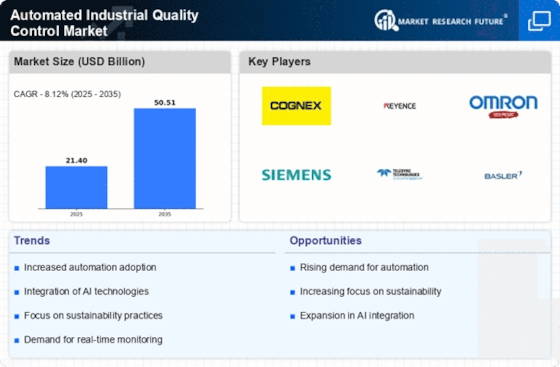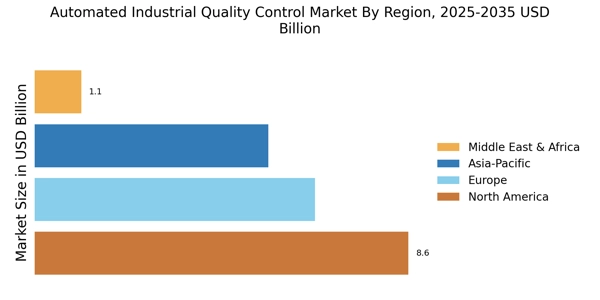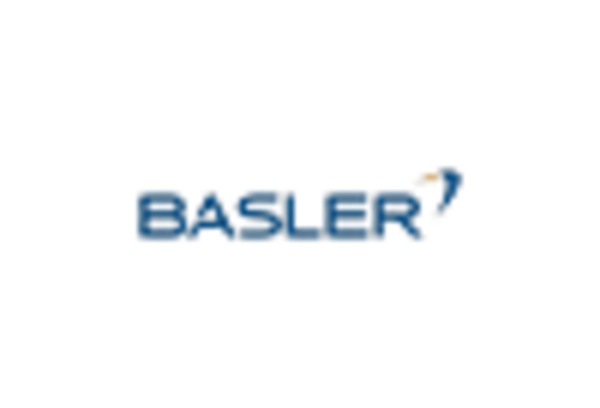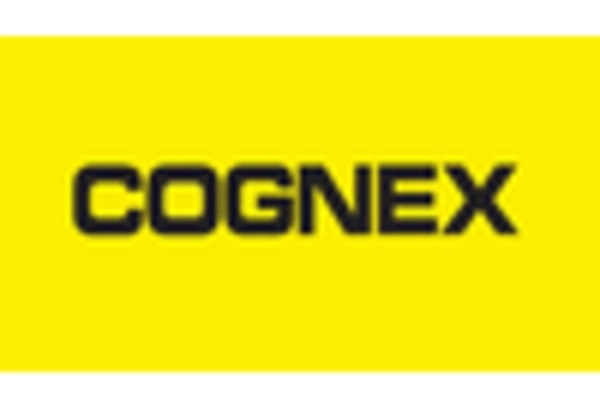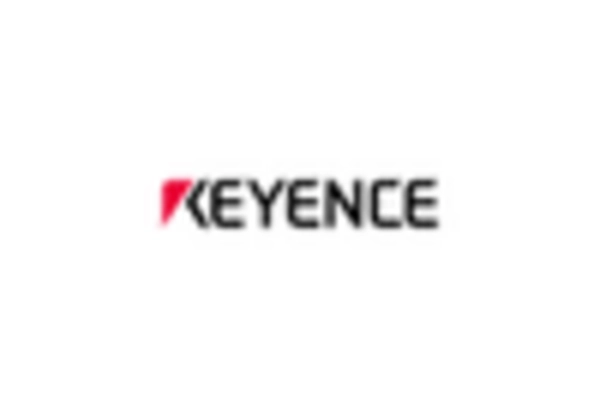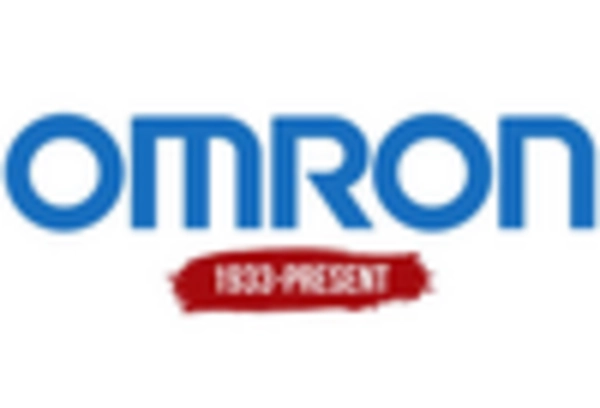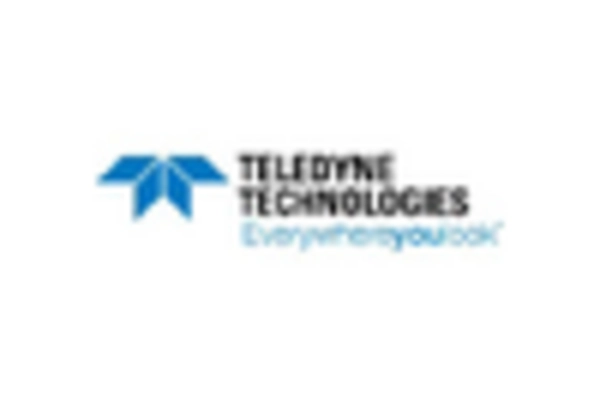Regulatory Compliance and Standards
Regulatory compliance is a pivotal factor influencing the Automated Industrial Quality Control Market. As industries face heightened scrutiny from regulatory bodies, the need for compliance with safety and quality standards has become paramount. In 2025, it is anticipated that the market will experience a surge in demand for automated quality control solutions that facilitate adherence to these regulations. Companies are likely to invest in automated systems to ensure that their products meet the required standards, thereby minimizing the risk of penalties and recalls. This focus on compliance not only enhances product quality but also fosters consumer trust, further driving market growth.
Rising Demand for Quality Assurance
The increasing emphasis on quality assurance across various industries is a primary driver for the Automated Industrial Quality Control Market. As manufacturers strive to meet stringent quality standards, the adoption of automated quality control systems has surged. In 2025, the market is projected to reach a valuation of approximately 5 billion USD, reflecting a compound annual growth rate of around 10%. This growth is indicative of the industry's shift towards automation, where traditional manual inspection methods are being replaced by advanced technologies. The need for consistent product quality and reduced defect rates is compelling organizations to invest in automated solutions, thereby propelling the market forward.
Technological Advancements in Automation
Technological advancements play a crucial role in shaping the Automated Industrial Quality Control Market. Innovations in robotics, machine vision, and sensor technologies have enhanced the capabilities of automated quality control systems. For instance, the integration of high-resolution cameras and sophisticated algorithms allows for precise defect detection and analysis. As of 2025, the market is expected to witness a significant increase in the adoption of these technologies, with an estimated growth rate of 12% annually. This trend suggests that companies are increasingly recognizing the value of investing in cutting-edge technologies to improve operational efficiency and product quality, thus driving the market's expansion.
Cost Reduction and Efficiency Improvement
The pursuit of cost reduction and efficiency improvement is a significant driver for the Automated Industrial Quality Control Market. Organizations are increasingly recognizing that automated quality control systems can lead to substantial savings by minimizing waste and reducing labor costs. In 2025, it is projected that companies implementing these systems could achieve operational cost reductions of up to 20%. This potential for enhanced efficiency is compelling manufacturers to transition from manual inspection processes to automated solutions. As a result, the market is likely to witness a robust growth trajectory, as businesses seek to optimize their operations and improve their bottom line.
Growing Focus on Data-Driven Decision Making
The growing focus on data-driven decision making is reshaping the Automated Industrial Quality Control Market. Companies are increasingly leveraging data analytics to inform their quality control processes, enabling them to make informed decisions based on real-time insights. By integrating automated quality control systems with data analytics platforms, organizations can enhance their ability to monitor production quality and identify trends. In 2025, the market is expected to expand significantly, driven by the increasing demand for data-driven solutions that facilitate proactive quality management. This trend indicates a shift towards a more analytical approach in quality control, further propelling market growth.


